Content
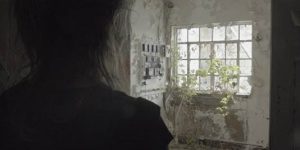
Abandoned IBM Country Club, Endicott NY
Tega Brain, Sam Lavigne, Hannah Jayanti (US)
Artists Tega Brain and Sam Lavigne discuss data, AI, and IBM’s toxic legacies with filmmaker Hannah Jayanti while exploring the abandoned IBM Country Club in Endicott, New York.

The Robot Suit
Mimi Onuoha (US)
In early 2020, Jess Myers and I participated in Safar, a performative conversation in public space. Hosted by art duo aghili/karlsson, the event involved a live streamed conversation between us as we moved from the center of Stockholm to the duo’s studio on the edge of the city. In reflection of our physical journey, the trip found the two of us conversing about margins, technology, architecture, blackness, and the spaces that we —and others like us— find ourselves constantly moving within and between.
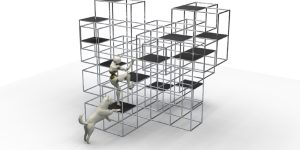
!brute_force: Workflow Reflections – Panel
Speakers: Alen Balja (SI/CH), Martí Sànchez-Fibla (ES), Maja Smrekar (SI), Tina Šolar (SI), Mia Zahariaš (SI), Moderation: Tatiana Kourochkina (RU)
Responding to the coronavirus pandemic, the !brute_force project focuses on the future of market-driven diagnostic wearables and AI-based health monitoring technologies. A human and dog performer climb through an installation of platforms and empty spaces. Both wear Electrocardiograph ECG/EKG diagnostic wearables, used for the medical monitoring of chronic heart and respiratory conditions.
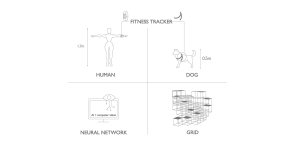
!brute_force - Journey
Maja Smrekar (SI)
Responding to the coronavirus pandemic, the !brute_force project focuses on the future of market-driven diagnostic wearables and AI-based health monitoring technologies.
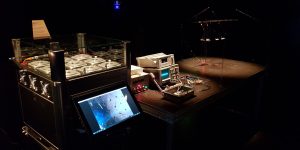
From Art to Innovation: Do They Really Need Us?
Gašper Beg (SI), Luka Frelih (SI), Miha Horvat (SI), Janez Janša (SI), Jurij Krpan (SI), Marko Peljhan (SI/US), Irena Pivka (SI), Marko Pritržnik (SI), Peter Purg (SI)
Despite the widely embraced opinion that involving artists and creatives in innovation processes contributes to better results, very few research and development platforms are employing artists or art thinking in their innovation teams. Die talk's participants will discuss the challenges for artists, scientists, engineers and entrepreneurs stemming from essentially non-existing collaborative/open innovations.
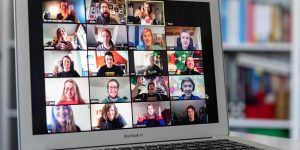
Jugend hackt remote: digital gardening
Jugend hackt Austria (AT), c3 (HU), mb21 (DE), ArtechLAB (NL), Ars Electronica (AT)
We present the outcome of Jugend hackt remote: digital gardening, which is a hackathon for young people from 12 to 18 years. It took place during August 29th and was inviting young coders from Austria, Germany, Hungary and the Netherlands

Young Animations
Every year young gifted filmmakers submit their weird, subtle, witty, utopian, critical and dystopian works for the Prix Ars Electronica’s category of “u19—create your world”, for the mb21 and the c<19 (HU). They show us their strong imagination, their deep understanding of certain topics, and all expressed with their abilities within one media.

The award ceremony of category u19–create your world
The award ceremony of category u19–create your world is the real highlight of the create your world festival. All 24 winning projects are awarded here. This year, the event serves as a kick-off for the subsequent networking opportunities within the create your world festival.
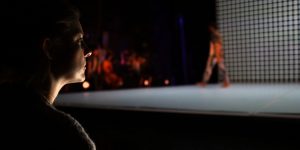
A Centaur Journey
Cecilie Waagner Falkenstrøm (DK)
How can we better comprehend the challenges and possibilities of artificial intelligence in art? And how do human-technology hybrids transform artistic practice? This video tour scrutinizes such questions and suggests that the increasing usage of machine learning in artistic practice calls for a re-examination of the artistic relationship between human and non-human actors.
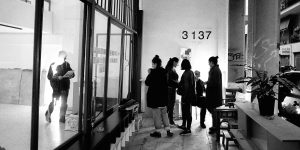
Creative Question Challenge: Hybrid forms of being together
3 137 (GR), Audrey-Flore Ngomsik (FR), Christos Carras (UK/GR)
Will there be no poverty and zero hunger across the world in ten years? Is this planet to be populated in ten years by billions of healthy and educated humans? Is comfortability or autonomy more important to well-being? Can you be comfortably autonomus? These are the questions scientists were asked who applied to an open call to collaborate with artists in the STUDITOPIA residency program.
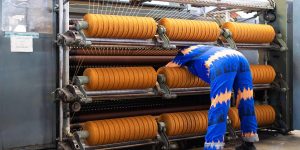
Creative Question Challenge: Examining organic and digital ecosystems
Hypercomf (GR), Markos Digenis (GR)
Will there be no poverty and zero hunger across the world in ten years? Is this planet to be populated in ten years by billions of healthy and educated humans? Is comfortability or autonomy more important to well-being? Can you be comfortably autonomus? These are the questions scientists were asked who applied to an open call to collaborate with artists in the STUDITOPIA residency program.
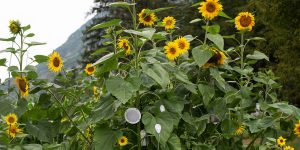
Unnatural Language: Botanic Quartet
Scott Kildall - Xenoform Labs (US), Michael Ang (CA)
Botanic Quartet is a generative musical composition by four plants endemic to Thailand. The results constitute a sort of ecospheric sentience as the plants don’t only respond to the sensed data, but communicate it to each other. This is a project under the umbrage of Unnatural Language, an ongoing collaboration between Scott Kildall and Michael Ang. Scott Kildall has been working with art, technology and education for over 15 years, looking at the interplay between territory and technology.
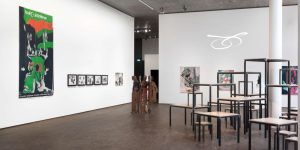
3D–Tour: Experience the Art Collection Deutsche Telekom in Nîmes and in Budapest
Deutsche Telekom AG, Bonn (DE)
A 3D tour of an exhibition can never convey the sensual presence and aesthetic power of its works of art. The physical presence in a real exhibition space, the complexity of looking and the experiencing the environment, cannot yet be conveyed through digital technology. Such a tour, however, can be an essential tool in documenting past events, and it serve as an additional platform for mediating content.
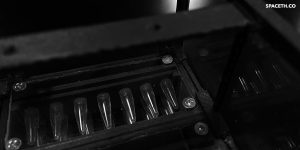
MESSE: Molecular Encoding Storage for Space Exploration
Spaceth.co (TH)
MESSE is an anti-disciplinary payload aboard the New Shepard spacecraft, launched into a sub-orbital trajectory 100 kilometers above, and explores weightlessness in the space environment. The payload contains bio-synthetically created DNA encoding “Kwam-Fhan-Kab-Chakarawan” (Aspiration and the Universe), a famous Thai song by artist Bodyslam, to demonstrate the algorithm that can encode and decode data into DNA. The science experiment will be conducted both before and after the spaceflight to study the products of DNA assembling in space and its preservation on several sample materials. This will allow the researchers to understand the possibility of DNA storage as a form of preserving knowledge or sending any data in the form of a molecular encoding message. This mission represents aspects of science and humanity and guidelines for future citizen space exploration in Thailand.
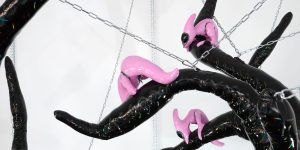
ANYWHERE
During the Ars Electronica Festival visitors in Linz will be transported virtually to Luxembourg to explore the exhibition ANYWHERE by Mary-Audrey Ramirez in Esch-Belval. Through an interactive multimedia experience and real-life online game, the Festival public will be able to discover sections of a retired blast furnace at the site of a former steel plant in Esch
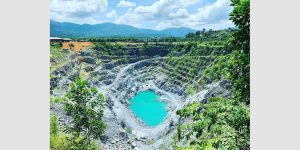
Making of Lunar Pearl
Henryandpartners (TH), SpaceZab (TH)
Pearl of Lunar explores infrastructural desire and the future of Belt-and-Road Initiatives as seen through wealth accumulation, labor infiltration, and geopolitical control; but also, more ephemerally, the affective meshwork of possessiveness and greed that functions at the individual and corporate level. Lunar Rock is a project by SpaceZab, a group of young scientists’ journey into Trad city, a rocky seaside landscape. They wade through rocks and the oceanside, excavating magmatic rock from the shore and the sea. The quest is to discover earth elements resembling moon dust for their future research and experiments.

Creative Question Challenge: Human being and "soft" technologies
Christiaan Zwanikken (NL), DM Hoyt (US), Emmanuel Grimaud (FR)
'Let us finish what we started'. This is how the UN introduces its first Sustainable Development Goal - to end poverty in all forms and dimensions by 2030. The 17 Sustainable Development Goals and their 169 targets have been described as a sprawling, misconceived mess of grandiose intentions.
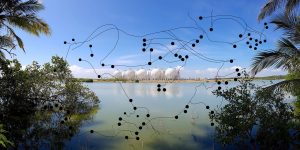
Garlic Med.Eat.Ation
Jennifer Katanyoutanant (US/TH), Grace Cong Xin Wong - Art Farm (US/HK), Zden Brungot Svíteková (SK)
The first chapter in our continuing Remote Intimacy series, Garlic Med. Eat. Ation creates sensory solidarity by exploring how intimacy can be shared remotely/virtually through touch and taste. Please bring a clove of garlic to experience the exhibit.
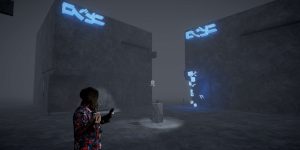
Rebecca Merlic - The City as a House
VENT gallery (AT)
Vast amounts of pictures, sounds, videos and 3D scans are organized as environments in Rebecca Merlic’s The City as a House, in form of an interactive visual novel. A work about the experiment of a white European 30-year-old heterosexual human living in Tokyo without inhabiting a private apartment over a period of time. A speculative exploration of the possibilities of abolishing known forms of habitation.
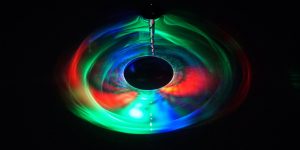
Creative Question Challenge: Between scientific discovery and perceptual expansion
Dmitry Gelfand & Evelina Domnitch (NL/BY), Guillaume Schweicher (BE/LU), Florian Schreck (DE)
Let us finish what we started'. This is how the UN introduces its first Sustainable Development Goal - to end poverty in all forms and dimensions by 2030. The 17 Sustainable Development Goals and their 169 targets have been described as a sprawling, misconceived mess of grandiose intentions. The title of the development agenda itself - 'Transforming our World' - oozes utopian ambition. It was adopted by 193 nations in 2015. Five years later and with ten years left, how do you think our world will transform?


